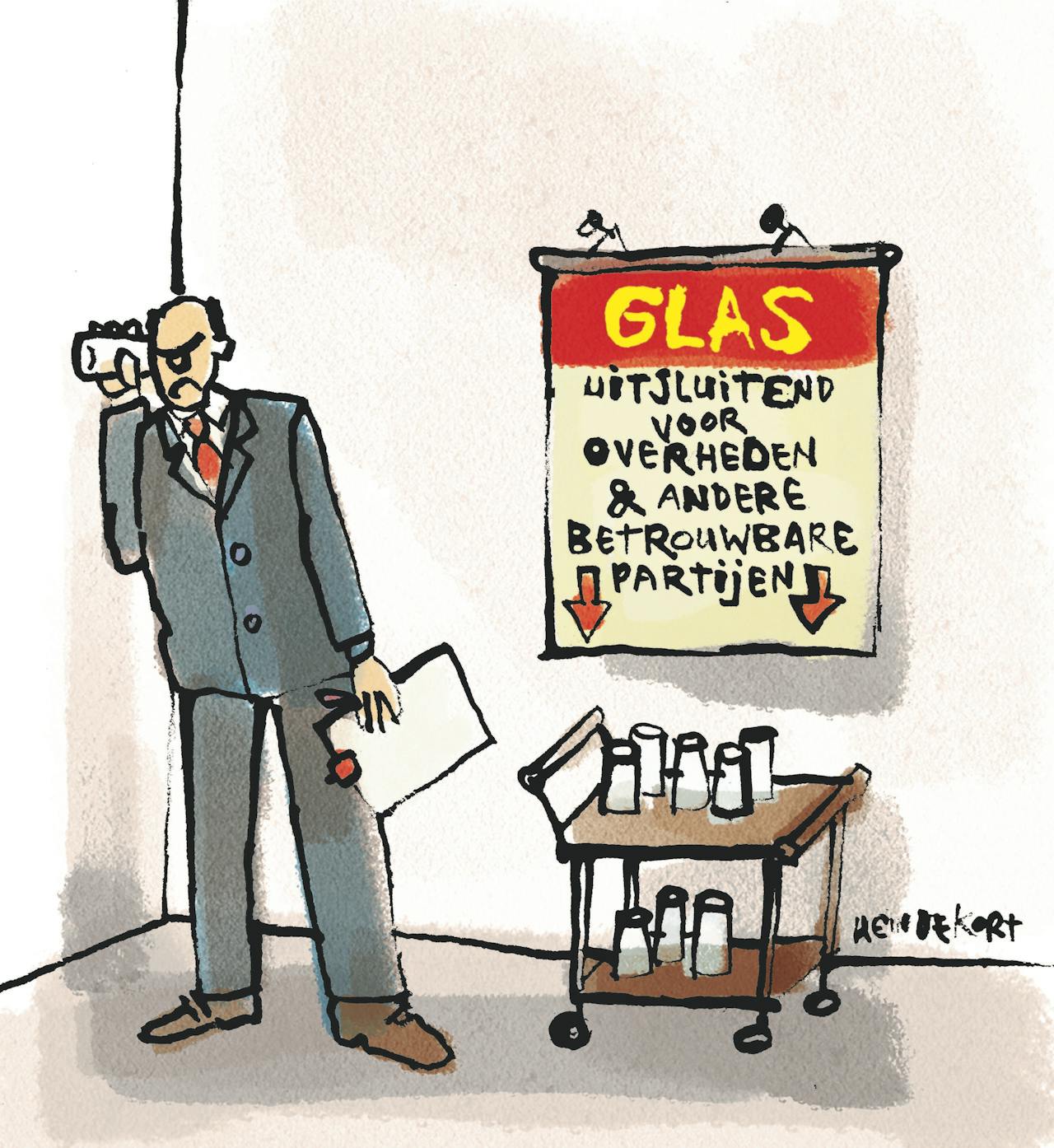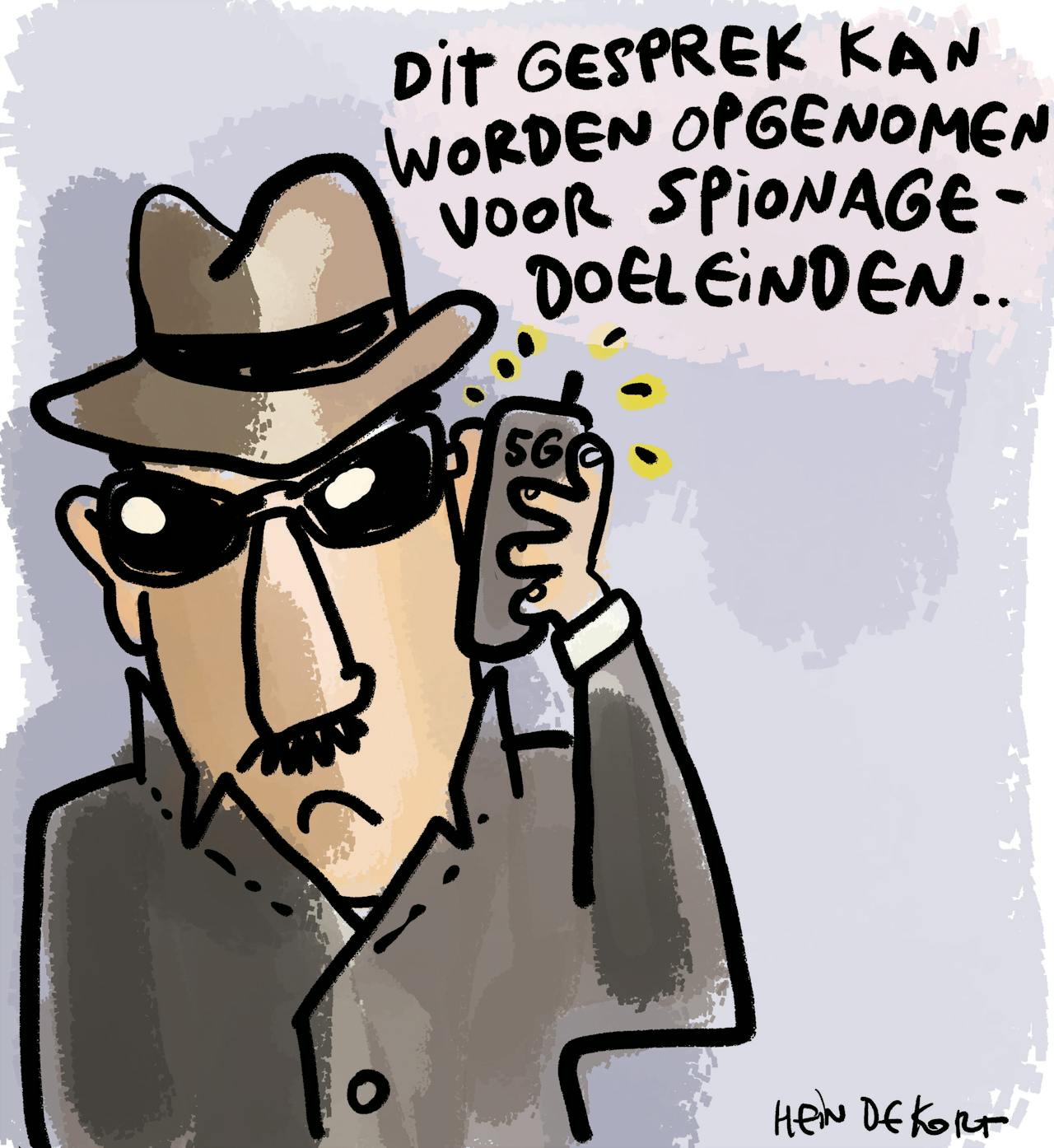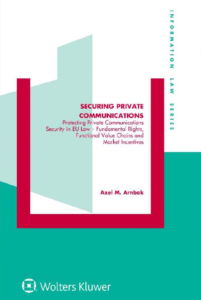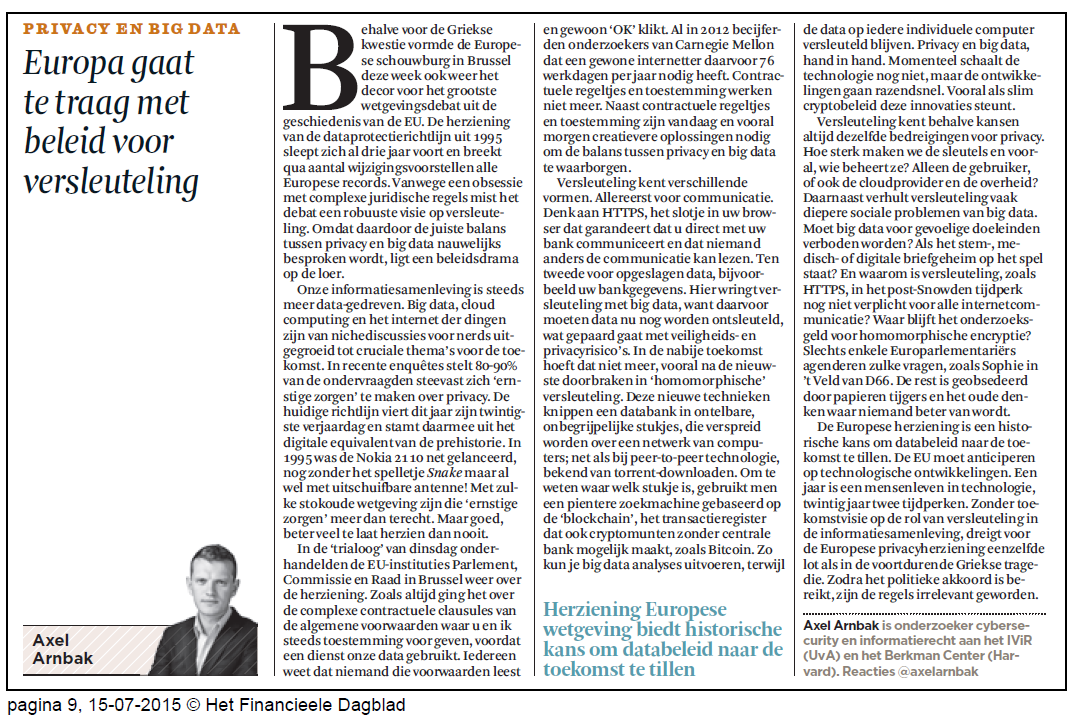Deze column staat in Het Financieele Dagblad van 9 januari 2020. Volg deze link voor mijn eerdere FD columns.
Geschiedenis herhaalt zich, ook in de relatief recente historie van het internet. Sinds de jaren negentig lanceren overheden iedere drie tot vijf jaar een voorstel om de versleuteling van internetcommunicatie te ondermijnen. Steeds is het debat heftig en emotioneel. En iedere keer is de uitkomst toch dat robuuste versleuteling onmisbaar is voor de werking van het internet, en daarmee ook voor onze financiële markten, ziekenhuizen, snelwegen en al het andere dat ons lief is in de digitale wereld.

Weliswaar kunnen kwade krachten – van terroristen via drugskartels tot kindermisbruikers – hun communicatie dan ook versleutelen. Desondanks blijken gerichte en slimme opsporingsacties succesvol om criminele netwerken op te rollen, kunnen de onmisbare voordelen van betrouwbare communicatie blijven bestaan en kan onze informatiesamenleving zich doorontwikkelen.
Nieuwe pogingen
Minister van Justitie en Veiligheid Ferdinand Grapperhaus en zijn evenknieën in de Verenigde Staten, het Verenigd Koninkrijk en Australië, maakten zich recent weer eens schuldig aan nieuwe pogingen om technologiebedrijven te verplichten een ‘exclusieve achterdeur’ te bouwen in hun versleutelde producten, zodat alleen ‘de overheid’ kan meeluisteren. Al dertig jaar klimmen experts, het bedrijfsleven en het maatschappelijk middenveld dan weer zuchtend in de pen om de samenleving te herinneren aan ons vorige dansje in deze cryptowars, bijvoorbeeld rondom de versleuteling van de 5G-standaard en de iPhone.
Maar de Amerikaanse minister van justitie William Barr gooide onlangs een nieuwe steen in deze versleutelingsvijver. Barr wil preventief alle internetcommunicatie scannen op ‘schadelijke informatie’. De adjudant van Trump stelt, misschien zonder het zelf te realiseren, in feite volledige surveillance van alle internetcommunicatie voor, zoals dictatoriale regimes dat kennen. Zijn plan moet, los van de juridische onmogelijkheid in de Europese Unie, principieel te vuur en te zwaard worden bestreden. Continue reading 74e FD Column: Plannen om versleuteling te ondermijnen zijn onveilig en gevaarlijk


